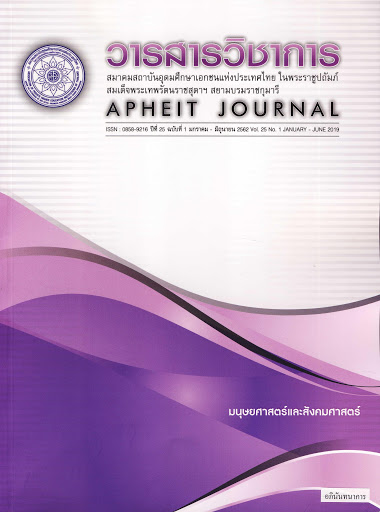Perspectives of “Self” through the Academic Views of Buddhism
บทคัดย่อ
Due to the Buddhist concepts that enhance humans to purposively develop their lives under the rules of truth that Buddha has enlightened, the supreme ideal of life is to end suffering i.e. nirvana. However, in the path of understanding this process without concerning world deserting to Dhamma path, it might begin with the explanation of nature or self of human together with the Truth of the world that leads to the explanation of “life” or “human self” varying to the level of Truth. In author’s view, the context of explanation in Buddhist philosophy uses logic in the same way like some schools of western philosophy which initiate from the proof of material self to abstract Truth. Nonetheless, the difference is Buddhist philosophy does not end with the search for absolute Truth since the absolute Truth is the non-existence of any immortality. The interpretation might be the understanding of Buddhism on the existence of self is to prove “non-self” which is the real self. Is this statement logical contradictory? Are there various definitions of self in the context of Buddhism? Therefore, this article’s objective is to explore and clarify the Buddhist philosophy’s explanation of “self”. By choosing to study Buddhist perspectives in accordance with the interpretation of Buddhadasa Bhikkhu and Somdet Phra Phutthakasachan (P. Payutto) as the main of consideration. Since both of them are experts in Buddhist philosophy that is widely accepted.





